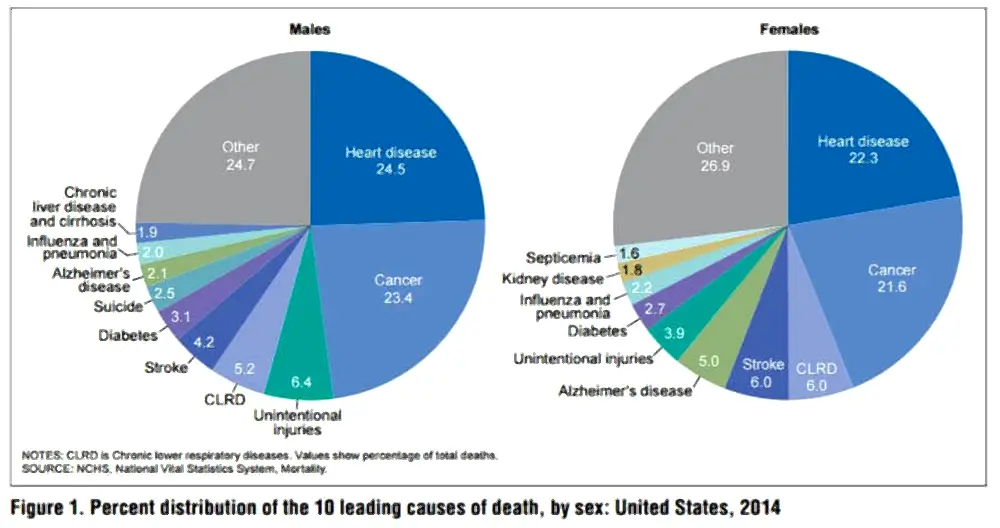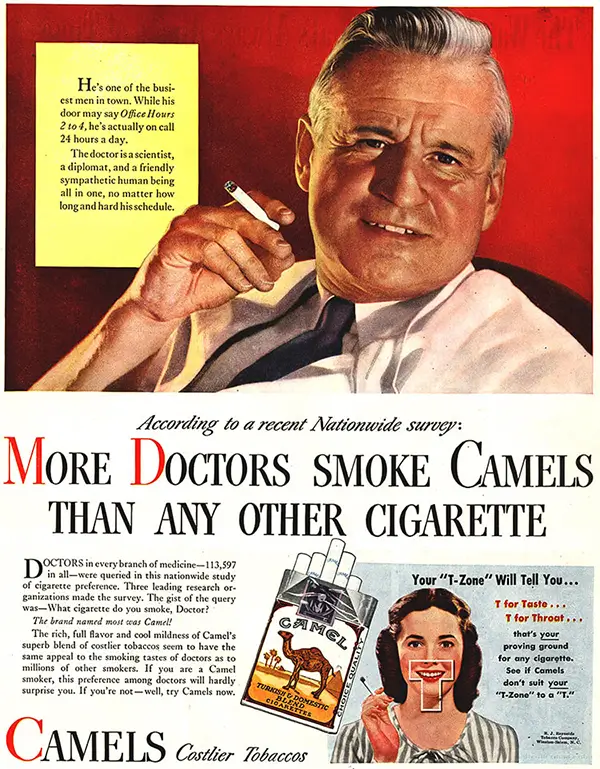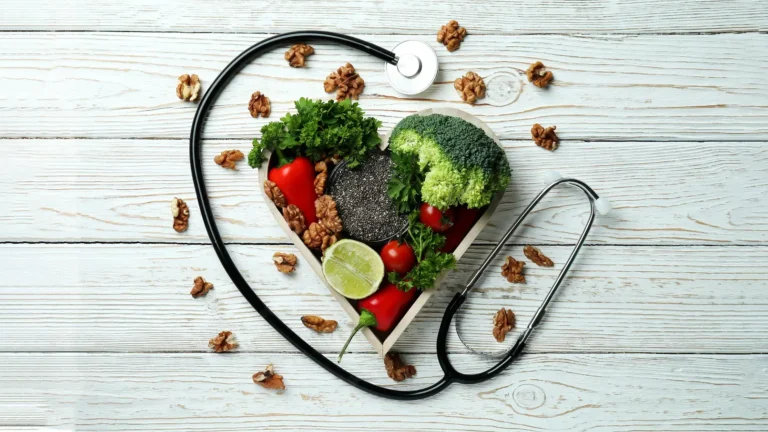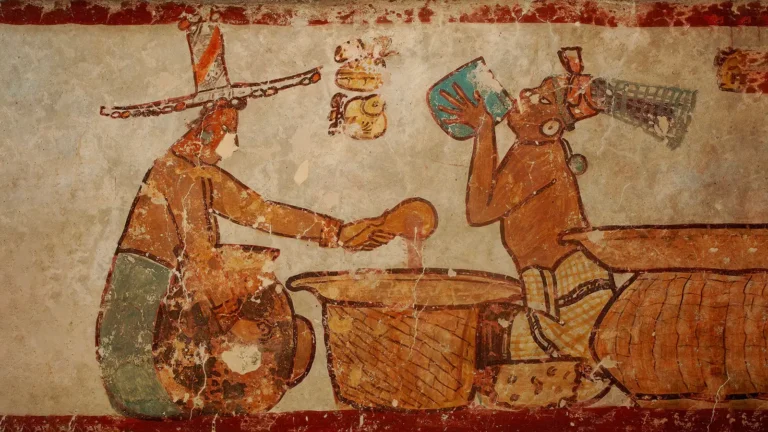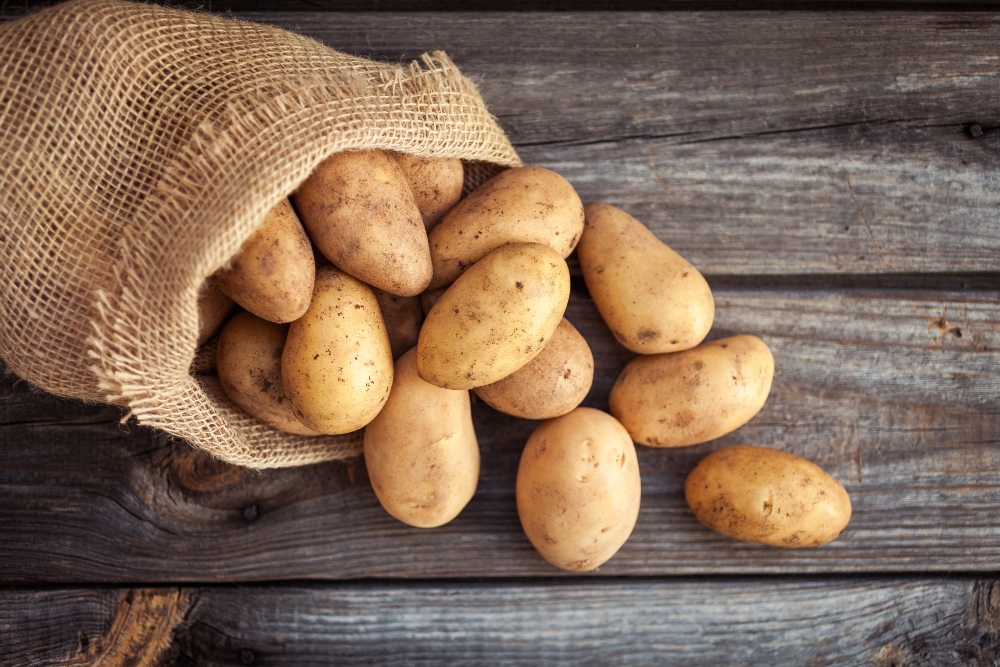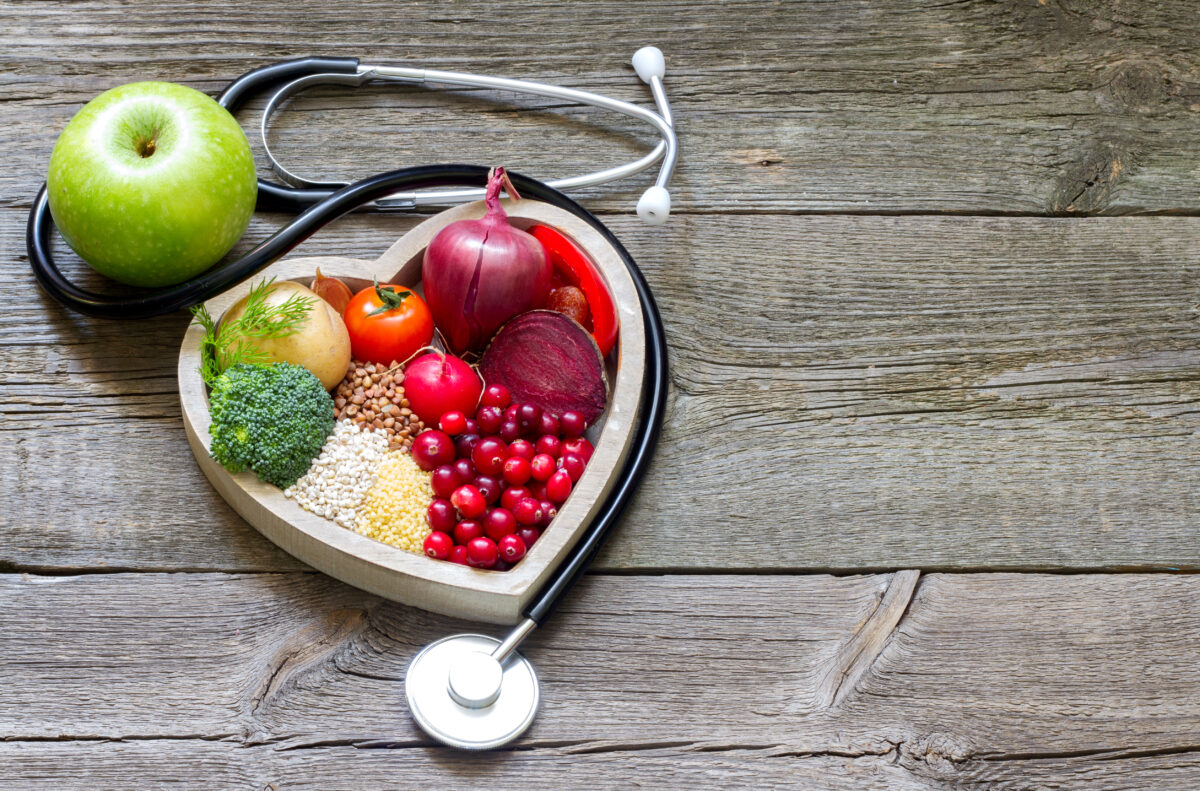Хронические заболевания и смертность - реальные цифры
В топ-10 ведущих причин смерти входят хронические заболевания, большинство из которых вызваны неэволюционно конгруэнтным питанием (большое количество продуктов животного происхождения).
Милош Покимица
Автор: Милош Покимица
Медицинская Обзор: Доктор Сюйинь Ван, Доктор Медицинских Наук.
Обновлено 9 июня 2023 годаБольшинство наших хронических заболеваний обусловлено питанием и образом жизни. Людям трудно поверить в то, что многие серьезные проблемы со здоровьем вызваны неэволюционным конгруэнтным питанием. Ежегодно Центр по контролю и профилактике заболеваний обновляет список ведущих причин смерти в США, да и во всех других развитых странах статистика очень похожа. Когда вы развиты как государство, у вас больше денег, чтобы тратить их на переработанную пищу и мясо. Из 10 ведущих причин смерти большинство вызвано выбором жизненного пути. Эти данные вызывают тревогу. Это не просто так.
Я постараюсь перевести данные с диаграммы, чтобы их было понятнее. Когда данные показывают, что 24 процента людей умирают от сердечных заболеваний, это означает, что, например, если у вас есть семья из четырех человек, один из них, скорее всего, умрет от сердечных заболеваний, а другой - от рака. Осталось двое. Затем, выбирайте сами, у вас диабет, инсульт, различные неврологические заболевания или цирроз печени, крлд - 5% (табакокурение, безусловно, является наиболее важным фактором риска развития хронического бронхита и эмфиземы, составляя около 80% всех случаев). Все эти заболевания являются хроническими. В прошлом их не существовало в таком большом количестве. Когда кто-то говорит о хронических заболеваниях, на самом деле он имеет в виду заболевания, связанные с образом жизни.
Другая сторона медали - нормальная безболезненная смерть от естественного старения, просто забудьте о ней. Этого больше не существует. Проблема не только в том, как мы умрем, а скорее в том, когда, потому что продолжительность жизни резко сокращается, а ее качество разрушается. Мы не собираемся просто умирать от рака. Будет много химиотерапии и депрессии, и снова рак уйдет, а через пару лет появится вновь. Когда у вас случается инсульт и вам удается выжить, вы можете потерять большой кусок мозга, а прежде чем вы умрете от сердечного приступа, вам придется пройти множество процедур.
Лечение включает в себя все изменения образа жизни, направленные на коррекцию вредных привычек, которые привели к возникновению хронических заболеваний, в первую очередь, нелюбимых нами, плюс лекарства и операции. Отказ от курения, физическая активность, поддержание здорового веса, управление стрессом (расстройство или гнев могут спровоцировать сердечный приступ). Не солить пищу и, конечно, принимать препараты, снижающие уровень холестерина. Статины - это стандартная линия, и почти всем пациентам назначают один из них, но при этом не любят говорить, что, если смотреть на реальные цифры, статистически они полезны только на ранних стадиях лечения сердечных заболеваний. Они эффективны и для тех пациентов, которые находятся в группе повышенного риска, но не имеют сердечно-сосудистых заболеваний, в качестве своего рода профилактики. Статины также, и об этом редко упоминается, имеют побочные эффекты, которые не являются шуткой. К ним относятся мышечные боли, риск развития сахарного диабета и отклонения в анализах печеночных ферментов.
Кому хочется испытывать постоянную боль? На самом деле они блокируют так называемую HMG-CoA. Они ингибируют фермент HMG-CoA, который играет важнейшую роль в производстве холестерина. Однако, опять же, если вы едите холестерин, он блокирует ферменты в вашей собственной печени, и его производство не имеет смысла.
Это означает отказ от мяса, яиц, молочных продуктов. Если посмотреть на то, что делают эти болезни, то это жизнь в безысходности.
Это не просто:" Хорошо, я буду жить так, как мне нравится, и если я умру в 60, а не в 65, какая разница, я умру счастливым". Если вы так думаете, то вы находитесь в опасном заблуждении. Сегодня у 5-летних детей уже имеются признаки артериосклеротической бляшки, причем примерно 50% детей имеют ее в возрасте 2-15 лет и 85% в возрасте 21-39 лет (Хонг, 2010). Это не нормально. Артериосклероз обычно не возникает при старении, как хотелось бы верить холестериновым путаникам, из-за напряженного кровотока.
Артериосклероз - это болезнь, а не процесс старения.
Болезни начинаются рано и могут длиться десятилетиями, прежде чем мы окончательно уйдем. Смертность от болезней сердца и инсульта, вероятно, будет гораздо выше, но некоторые пациенты буквально до смерти пугаются. И они правы. Услышав новость о сердечно-сосудистых заболеваниях, они готовы умереть, поэтому какой-то процент из них все же меняет образ жизни и им удается избежать сердечного приступа. Однако, повторюсь, это всего лишь таблица болезней, которые нас убьют.
Настоящая, большая и более продвинутая таблица - это таблица с целым списком хронических заболеваний, которые не обязательно убьют нас, хотя некоторые из них могут сделать и это, но “просто” будут держать нашу жизнь в страданиях. Это так называемые хронические заболевания, такие как артрит, астма, аллергия, боли в спине, болезнь Крона, остеопороз, аутоиммунные заболевания, такие как псориаз, различные формы волчанки, рассеянный склероз, широкий спектр психических заболеваний, таких как зависимость, депрессия, биполярное расстройство, эпилепсия, зависимости различных форм, или просто “обычные” состояния, такие как тревожность, акне вульгарис, низкий уровень энергии и усталости, проблемы со сном, памятью и настроением.
Все это является общепринятой наукой и признается как научный факт. В прошлом и в сельских районах неразвитого мира этих болезней не существовало до недавнего времени. В настоящее время проведены тысячи исследований на эту тему. Например, за последние 40 лет было проведено два адвентистских исследования здоровья, в которых приняли участие более 50 000 калифорнийских адвентистов. Знаменитое китайское исследование, возможно, одно из самых известных среди обычных людей. Также было проведено Гарвардское исследование "Мясо и смертность" (Пан и др., 2012). В исследованиях, проведенных в Гарварде, в течение двух десятилетий наблюдалось более 100 000 человек. В самом крупном на сегодняшний день исследовании полмиллиона человек наблюдались в течение десяти лет.
Нелегко следить за полумиллионом людей в течение десяти лет. Это было исследование Национального института здравоохранения, пока самое крупное в истории изучение диеты и здоровья (Синха и др., 2009).
На самом деле не было никакой необходимости проводить все эти исследования. Сегодняшние диетические войны носят искусственный характер. Науке было хорошо известно о риске смертности еще в 50-е годы. Даже до Второй мировой войны в научном сообществе существовали знания, но они в основном игнорировались.
Все хронические заболевания сегодня называют болезнями достатка. Когда уровень жизни растет, растет и потребление мяса. Сегодня есть только сопротивление простых людей, промышленности и правительства, которые не хотят внедрять новые диетические рекомендации по целому ряду причин.
Стандартная американская диета с преобладанием продуктов животного происхождения крайне дефицитна по питательным веществам. При потреблении мяса, яиц и молочных продуктов более 60% людей испытывают дефицит магния. Более 90% людей, потребляющих мясо, испытывают дефицит калия и более 80% - дефицит витамина Е. Животные продукты не содержат магния и витамина Е в достаточном количестве. Кроме того, в продуктах животного происхождения отсутствуют и другие "незаменимые" питательные вещества, такие как незаменимые минералы, антиоксиданты, фитохимические вещества, йод, витамин D, селен и т.д. Минимальные рекомендуемые значения во многих случаях являются заведомо низкими. В качестве примера можно привести RDA для йода.
Эта история - история о качестве жизни. Лечение стоит дорого.
Это та же история, что и с курением. Пока диетические рекомендации не изменены, а они будут изменены, каждый человек сам должен изучать диету и питание.
Это трудно сделать при наличии всей противоречивой информации. Сегодня люди все еще курят, но, по крайней мере, они осознают связанные с этим риски.
Никто не должен заставлять кого-либо делать что-либо. Риски должны быть осознаны, и решение должно быть осознанным.
Ссылки:
- Хонг Й. M. (2010). Атеросклеротические сердечно-сосудистые заболевания, начинающиеся в детстве. Корейский тиражный журнал, 40(1), 1-9. https://doi.org/10.4070/kcj.2010.40.1.1
- Пан, А., Сунь, К., Бернштейн, А. М., Шульце, М. Б., Мэнсон, Ж. Е., Стампфер, М. Ж., Уиллетт, В. К., и Ху, Ф. Б. (2012). Потребление красного мяса и смертность: результаты двух проспективных когортных исследований. Архивы внутренней медицины, 172(7), 555-563. https://doi.org/10.1001/archinternmed.2011.2287
- Синха Р., Кросс А. Дж., Граубард Б. И., Лейцман М. Ф. и Шацкин А. (2009). Потребление мяса и смертность: проспективное исследование более полумиллиона человек. Архивы внутренней медицины, 169(6), 562–571. https://doi.org/10.1001/archinternmed.2009.6
Похожие Записи
У вас есть какие-либо вопросы о питании и здоровье?
Я хотел бы услышать ваше мнение и ответить на них в моем следующем посте. Я ценю ваш вклад и мнение и с нетерпением жду вашего скорого ответа. Я также приглашаю вас следовать за нами на Facebook, Instagram и Pinterest для получения дополнительной информации о диетах, питании и здоровье. Там можно оставить комментарий и пообщаться с другими приверженцами здорового образа жизни, поделиться своими советами и опытом, а также получить поддержку и ободрение от нашей команды и сообщества.
Я надеюсь, что эта статья была для вас познавательной и приятной и что вы готовы применить полученные знания. Если эта статья оказалась полезной, пожалуйста поделиться с друзьями и родственниками, которым это может быть полезно. Никогда не знаешь, кому может понадобиться совет и поддержка на пути к здоровью.
– Вам Также Может Понравиться –

Узнайте о Питании
Милош Покимица - доктор естественной медицины, клинический диетолог, автор статей о здоровье и питании и консультант по вопросам питания. Автор серии книг Стать веганом? Обзор науки, он также управляет веб - сайтом natural health GoVeganWay.com
Медицинский Отказ от Ответственности
GoVeganWay.com предлагает вам обзоры последних исследований, связанных с питанием и здоровьем. Предоставленная информация представляет собой личное мнение автора и не предназначена и не подразумевается в качестве замены профессиональной медицинской консультации, диагностики или лечения. Предоставленная информация предназначена исключительно для информационных целей и не предназначена для замены консультации, диагностики и/или лечения у квалифицированного врача или поставщика медицинских услуг.НИКОГДА НЕ ПРЕНЕБРЕГАЙТЕ ПРОФЕССИОНАЛЬНЫМИ МЕДИЦИНСКИМИ СОВЕТАМИ И НЕ ОТКЛАДЫВАЙТЕ ОБРАЩЕНИЕ ЗА МЕДИЦИНСКОЙ ПОМОЩЬЮ ИЗ-ЗА ТОГО, ЧТО ВЫ ЧТО-ТО ПРОЧИТАЛИ Или ПОЛУЧИЛИ ДОСТУП Через GoVeganWay.com
НИКОГДА НЕ МЕНЯЙТЕ ОБРАЗ ЖИЗНИ Или КАКИЕ-ЛИБО ИЗМЕНЕНИЯ ВООБЩЕ ВСЛЕДСТВИЕ ТОГО, ЧТО ВЫ ПРОЧИТАЛИ В GoVeganWay.com ДО КОНСУЛЬТАЦИИ С ЛИЦЕНЗИРОВАННЫМ ПРАКТИКУЮЩИМ ВРАЧОМ.
В случае неотложной медицинской помощи немедленно позвоните врачу или 911. GoVeganWay.com не рекомендует и не одобряет какие-либо конкретные группы, организации, тесты, врачей, продукты, процедуры, мнения или другую информацию, которая может быть упомянута внутри.
Выбор редактора –
Милош Покимица - доктор естественной медицины, клинический диетолог, автор статей о здоровье и питании и консультант по вопросам питания. Автор серии книг Стать веганом? Обзор науки, он также управляет веб - сайтом natural health GoVeganWay.com
Последние статьи -
Новости , Основанные на растениях
-
Vegan Christmas Day 5: Stuffed Roasted Joint
on Декабрь 5, 2025
-
‘Vegan McDonald’s’ Mr Charlie’s To Open Two New San Diego Locations
on Декабрь 5, 2025
-
Vegan Christmas Day 4: Pesto Puff Pastry Trees
on Декабрь 4, 2025
-
From Side Dish to Superfood: White Potatoes Are Making a Comeback
on Декабрь 4, 2025
-
SPINS Data Finds The Plant-Based Sector Isn’t Dying, It’s Just Evolving
on Декабрь 4, 2025
-
Vegan Christmas Day 3: Easy Chocolate Ganache Tart
on Декабрь 3, 2025
-
Plant-Based Diets Could Help Prevent And Reverse CMD Heart Disease, Says Study
on Декабрь 3, 2025
Главные Новости Эдравоохранения — ScienceDaily
- Next gen cancer drug shows surprising anti aging poweron Декабрь 5, 2025
A next-generation drug tested in yeast was found to extend lifespan and slow aging by influencing a major growth-control pathway. Researchers also uncovered an unexpected role for agmatinases, enzymes that help keep this pathway in balance. Diet and gut microbes may affect aging more than expected because they produce the metabolites involved.
- Scientists reveal a powerful heart boost hidden in everyday foodson Декабрь 5, 2025
Regular consumption of polyphenol-rich foods like tea, coffee, berries, nuts, and whole grains may significantly support long-term heart health. A decade-long study of more than 3,100 adults found that those who consistently ate polyphenol-packed diets had healthier blood pressure and cholesterol levels, as well as lower predicted cardiovascular risk.
- Alzheimer’s blood tests may be misleading for people with kidney problemson Декабрь 5, 2025
A large study found that people with impaired kidneys tend to have higher Alzheimer’s biomarkers, yet they don’t face a higher overall risk of dementia. For those who already have elevated biomarkers, kidney problems may speed up when symptoms appear. The findings show that kidney health can change how Alzheimer’s blood tests are read. Doctors may need to consider both organs to get a clearer picture.
- Experimental RNA treatment shows surprising DNA repair poweron Декабрь 5, 2025
Cedars-Sinai scientists have created a new experimental drug called TY1 that helps the body repair damaged DNA and restore injured tissue. The discovery came from studying tiny molecular messages released by heart cells that naturally support healing after injury. By identifying and recreating the most powerful of these messages, the team developed a synthetic RNA molecule that boosts the body’s DNA-repair system, reduces scarring, and may improve recovery after heart attacks and other […]
- Scientists find hidden brain nutrient drop that may fuel anxietyon Декабрь 5, 2025
Researchers found that people with anxiety disorders consistently show lower choline levels in key brain regions that regulate thinking and emotions. This biochemical difference may help explain why the brain reacts more intensely to stress in anxiety conditions. Scientists believe nutrition could play a role in restoring balance, though more research is needed. Many Americans already fall short of recommended choline intake, making diet a potential area of interest.
- Daily coffee may slow biological aging in mental illnesson Декабрь 4, 2025
Researchers studying people with major psychiatric disorders found that drinking up to four cups of coffee a day is associated with longer telomeres. This suggests a potential slowing of biological aging by about five years. However, drinking five or more cups showed no benefit and may even contribute to cellular damage. Coffee’s antioxidant and anti-inflammatory properties may help explain the effect.
- Simple nutrient mix delivers surprising autism breakthrough in miceon Декабрь 4, 2025
A low-dose mix of zinc, serine, and branched-chain amino acids boosted neural function and social behavior in autism mouse models. The combination restored more typical synaptic protein patterns and reduced excessive amygdala activity. Individual supplements had no effect, showing that the nutrients must work together. The findings point toward a promising multi-nutrient strategy for influencing brain circuits involved in autism.
Опубликованный, #веганская диета –
- Plant-based dietary index on the Mediterranean and a vegan diet: a secondary analysis of a randomized, cross-over trialon Декабрь 5, 2025
CONCLUSION: These findings suggest that, replacing animal products even with the “unhealthful” plant-based foods on a vegan diet was associated with weight loss.
- A vegan diet signature from a multi-omics study on different European populations is related to favorable metabolic outcomeson Декабрь 4, 2025
Vegan and omnivorous diets differ markedly in composition, but their effects on the gut microbiome, metabolome, and lipidome across populations remain insufficiently characterized. While both diet and country of origin influence these molecular layers, the relative contribution of diet versus country-specific factors has not yet been systematically evaluated within a multi-omics framework.In this cross-sectional, bicentric, observational study, we profiled healthy vegans (n = 100) and […]
- The VEGPREV study: effectiveness of four plant-based diets on weight loss, metabolic syndrome components and appetitive traits in overweight and obese individuals: a randomized controlled trialon Декабрь 4, 2025
CONCLUSION: Among plant-based dietary patterns differing in animal product content, the EAT and VG diets demonstrated the most pronounced effects on weight and body composition. These findings provide support for the notion that structured, plant-based dietary interventions can be effective strategies for managing body weight.
- Prevalence, motivations, lifestyle preferences, and basic health behavior among 1,350 vegan, vegetarian, and omnivorous Austrian school teachers and principalson Декабрь 4, 2025
CONCLUSION: This is the first study to investigate the potential differences in basic health behavior among refined dietary subgroups (omnivorous, ovo-lacto-vegetarian, and vegan) in school teachers and principals. The findings indicate that basic diet type differentiation is the first step towards fundamentally healthy behavior, however, further action must be taken to achieve better health among school teachers and principals in Austria (more physical activity, sports and exercise, and […]
- Appropriate Intervention Diets to Manage Type 2 Diabetes Mellitus Among Adults in Australia: A Systematic Reviewon Декабрь 3, 2025
Type 2 diabetes mellitus (T2DM) is a chronic metabolic disorder characterised by insulin resistance and hyperglycaemia, contributing to significant morbidity and mortality worldwide, including in Australia. This systematic review aimed to explore the most appropriate dietary interventions for managing T2DM among Australian adults. Following the Preferred Reporting Items for Systematic Reviews and Meta-Analyses (PRISMA) guidelines, databases including PubMed, Medline, Embase, and Google […]
Случайные сообщения –
Популярные сообщения -

Последние новости от PubMed, #растительная диета –
- Micronutrient bioavailability: concepts, influencing factors, and strategies for improvementby James D Richards on Декабрь 5, 2025
The human diet provides a range of macronutrients and micronutrients, which are metabolized for energy and used to support all aspects of life. The extent to which these nutrients are absorbed in a form that can be used by metabolic processes, or stored for later use, is termed bioavailability. Certain dietary factors increase the bioavailability of micronutrients: bioavailability can be enhanced by different vitamin forms (e.g., calcifediol is more bioavailable than cholecalciferol;…
- Plant-based dietary index on the Mediterranean and a vegan diet: a secondary analysis of a randomized, cross-over trialby Hana Kahleova on Декабрь 5, 2025
CONCLUSION: These findings suggest that, replacing animal products even with the “unhealthful” plant-based foods on a vegan diet was associated with weight loss.
- A vegan diet signature from a multi-omics study on different European populations is related to favorable metabolic outcomesby Anna Ouradova on Декабрь 4, 2025
Vegan and omnivorous diets differ markedly in composition, but their effects on the gut microbiome, metabolome, and lipidome across populations remain insufficiently characterized. While both diet and country of origin influence these molecular layers, the relative contribution of diet versus country-specific factors has not yet been systematically evaluated within a multi-omics framework.In this cross-sectional, bicentric, observational study, we profiled healthy vegans (n = 100) and […]
- Inferring Endozoochory From Ingestion to Germination Through Biological Filters: Brown Bear Feces as a Case Studyby Grégoire Pauly on Декабрь 4, 2025
Diaspore (e.g., seed and spore) dispersal is recognized as a key mechanism in plant dynamics, including endozoochory, which can be a risky journey for diaspores. Endozoochory is achieved when diaspores are consumed and may germinate after the mastication, the gut and fecal matrix passage, all representing filters for diaspores. Nevertheless, endozoochory is a highly studied mechanism through numerous methods, notably based on the observation of frugivorous behavior, diaspores retrieved in […]
- The VEGPREV study: effectiveness of four plant-based diets on weight loss, metabolic syndrome components and appetitive traits in overweight and obese individuals: a randomized controlled trialby Klaudia Wiśniewska on Декабрь 4, 2025
CONCLUSION: Among plant-based dietary patterns differing in animal product content, the EAT and VG diets demonstrated the most pronounced effects on weight and body composition. These findings provide support for the notion that structured, plant-based dietary interventions can be effective strategies for managing body weight.
- Prevalence, motivations, lifestyle preferences, and basic health behavior among 1,350 vegan, vegetarian, and omnivorous Austrian school teachers and principalsby Katharina C Wirnitzer on Декабрь 4, 2025
CONCLUSION: This is the first study to investigate the potential differences in basic health behavior among refined dietary subgroups (omnivorous, ovo-lacto-vegetarian, and vegan) in school teachers and principals. The findings indicate that basic diet type differentiation is the first step towards fundamentally healthy behavior, however, further action must be taken to achieve better health among school teachers and principals in Austria (more physical activity, sports and exercise, and […]
